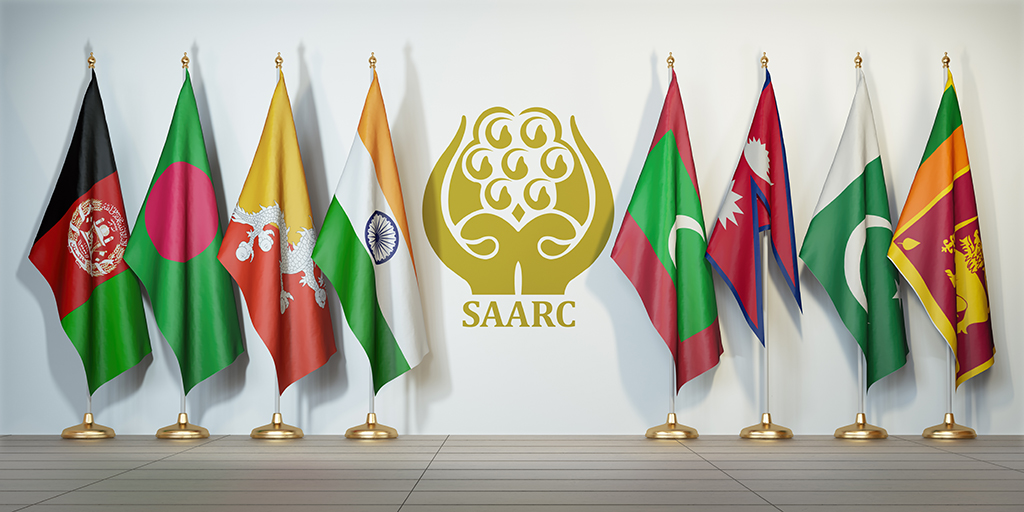Can South Asia put India-Pakistan hostilities behind to unite for greater good?
By Ramesh Thakur
Ramesh Thakur is an emeritus professor at the Crawford School of Public Policy at Australian National University, a fellow at the Australian Institute of International Affairs, a senior research fellow with the Toda Peace Institute, and a former United Nations assistant secretary general.
Republished in the South China Morning Post: https://www.scmp.com/week-asia/opinion/article/3119589/can-south-asia-put-india-pakistan-hostilities-behind-unite

JANUARY, 29, 2021
With nearly 1.9 billion people living in South Asia, the eight-member South Asian Association for Regional Cooperation (Saarc) is clearly among the biggest regional organisations in the world by representative population, yet it has failed to unite member states on common issues in the mould of the better known, and larger, Association of Southeast Asian Nations (Asean), which has 10 members, or the 27-member European Union.
Instead, despite their shared histories and administrative and economic traditions inherited from the British Raj, integration within South Asia – comprising Afghanistan, Bangladesh, Bhutan, India, Maldives, Nepal, Pakistan and Sri Lanka – has progressively weakened over the years. A major factor has been the constant hostility between India and Pakistan since their split into independent countries in 1947.
That hostility has translated into disarray within the entire organisation, whose members last got together in person all the way back in November 2014, in Kathmandu, Nepal. A summit scheduled for November 2016 in Islamabad, Pakistan, was cancelled after India decided to boycott attendance after a terrorist attack in Indian-administered Jammu and Kashmir in September of the same year.
But with all eight Saarc countries facing common, intractable issues like poverty, threats to internal security and economic scarcity, the urgency to hold a summit and find solutions to their problems is now paramount. The grouping, which represents around 21 per cent of the world’s population, 4 per cent of the global economy and 3 per cent of the world’s area, also faces a shared fragility made worse by the coronavirus pandemic and climate change.
There are three ways Saarc leaders, in particular the prime ministers of India and Pakistan, Narendra Modi and Imran Khan, respectively, can rise to the challenge of promoting greater regionalism and economic development within the bloc – with the stronger economies in turn resulting in deeper social welfare programmes across South Asia.
The first goal should be to prioritise regional integration: India and Pakistan (and others) should not skip summit meetings even if their relations are fraught. The second: decouple trade with geopolitical relations, with a particular focus on normalising trade between India and Pakistan regardless of the state of ties. The third: As the largest country in South Asia (by land, population, economy and other indices), India should have a greater stake in strengthening Saarc. If regionalism is elevated to the status of a high-priority plank of India’s foreign policy, it would enhance the country’s global importance, influence and role.
India by itself accounts for around 75 per cent of South Asia’s total population, 63 per cent of its land area and 80 per cent of its economic product. Its position within Saarc is also distinguished by the fact that only the Maldives and Afghanistan do not share a border with it. Geography ensures that India is open to the influence of any major social and political forces sweeping its neighbours, and vice versa, for example Sinhalese-Tamil tensions in Sri Lanka or the rise of anti-Muslim sentiment in India. These features distinguish South Asia and shape its intraregional dynamics in a unique way that is not true of any other region in the world.
As the giant of the group, India took the initiative to fashion a regional response to the Covid-19 pandemic, with the leaders of all Saarc countries taking part in a videoconference convened by Modi last March. Only Khan was absent from the videoconference, although Pakistan was represented by a senior health official.
After that meeting, Modi committed US$10 million towards a Saarc Covid-19 Emergency Fund. The other Saarc countries, including Pakistan, also donated to the fund, bringing the total contribution to US$21.8 million. Modi also offered a rapid-response team of doctors and specialists, as well as online training help.
Following this offer, medical teams from India travelled to the Maldives and Nepal to train local doctors and set up medical centres and quarantine facilities. India also sent supplies and testing equipment to Nepal, the Maldives, Bhutan, Sri Lanka and Bangladesh. Around 23 tonnes of essential medicines were sent to Nepal alone.
In addition, India, the world’s largest producer of vaccines, has begun its mass coronavirus vaccination campaign and has already sent free vaccines to neighbours including Nepal, Sri Lanka, Bangladesh and Bhutan.
Such cooperation could be a cornerstone for transforming the lives of ordinary citizens within the group and also help take the sting out of the bitter enmity between India and Pakistan, making it possible to keep channels of cooperation in other areas open and deliver positive outcomes for the region as a whole, instead of engaging in zero-sum strategic games.
One of the positive outcomes would be better economic integration, which would benefit a common market undergirded by affordable social security safety nets for the poor and underprivileged, leading to a quicker climb up the human development ladder. Working together will also help South Asian countries tackle the other challenges that lie ahead, and are potentially much bigger, such as climate change and environmental degradation.
The views and opinions expressed in this article are those of the author(s) and do not necessarily reflect those of the Asia Research Institute, National University of Singapore.
Latest
Nuclear Deterrence 3.0
Rakesh Sood
The Biden era: challenges and opportunities for Southeast Asia
Michael Vatikiotis
Islamist Terrorism in Indonesia: Roots and Responses
Noor Huda Ismail
Can Asians speak truth to power?
Hugh White
How China and the U.S. Can Avoid a Clash in the South China Sea.
Mark J. Valencia
China and Japan: Will They Ever Reconcile?
Tommy Koh
China and India: A New Diplomacy
Kanti Bajpai

